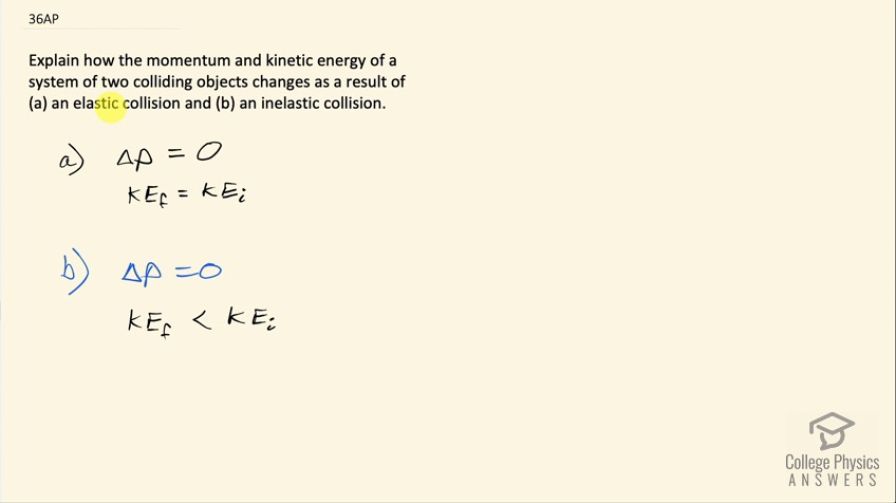Question
Explain how the momentum and kinetic energy of a system of two colliding objects changes as a result of (a) an elastic collision and (b) an inelastic collision.
Final Answer
- There is no change in momentum, nor in total kinetic energy.
- There is no change in total momentum, but the final kinetic energy is less than the initial kinetic energy.
Solution video
OpenStax College Physics for AP® Courses, Chapter 8, Problem 36 (Test Prep for AP® Courses)

vote with a rating of
votes with an average rating of
.
Video Transcript
This is College Physics Answers with Shaun Dychko. Question asks us to talk about how the momentum and kinetic energy of a system of two colliding objects changes as a result of an elastic collision or an inelastic collision? Now so long as you have considered all the objects involved in the collision, the change in momentum will always be zero regardless of whether it's elastic or inelastic but with an elastic collision, we can further say that the kinetic energy is conserved and so the total kinetic energy of all the objects involved after the collision will equal the total kinetic energy of all the objects involved before the collision. In part (b), we have an inelastic collision and we can say that the momentum is conserved in which case, there's no change in momentum— the total momentum will be the same before and after the collision so the change in the total momentum will be zero— but we can say that the kinetic energy final will be less than the initial kinetic energy because some energy will be transformed from kinetic into probably heat energy when the objects collide.